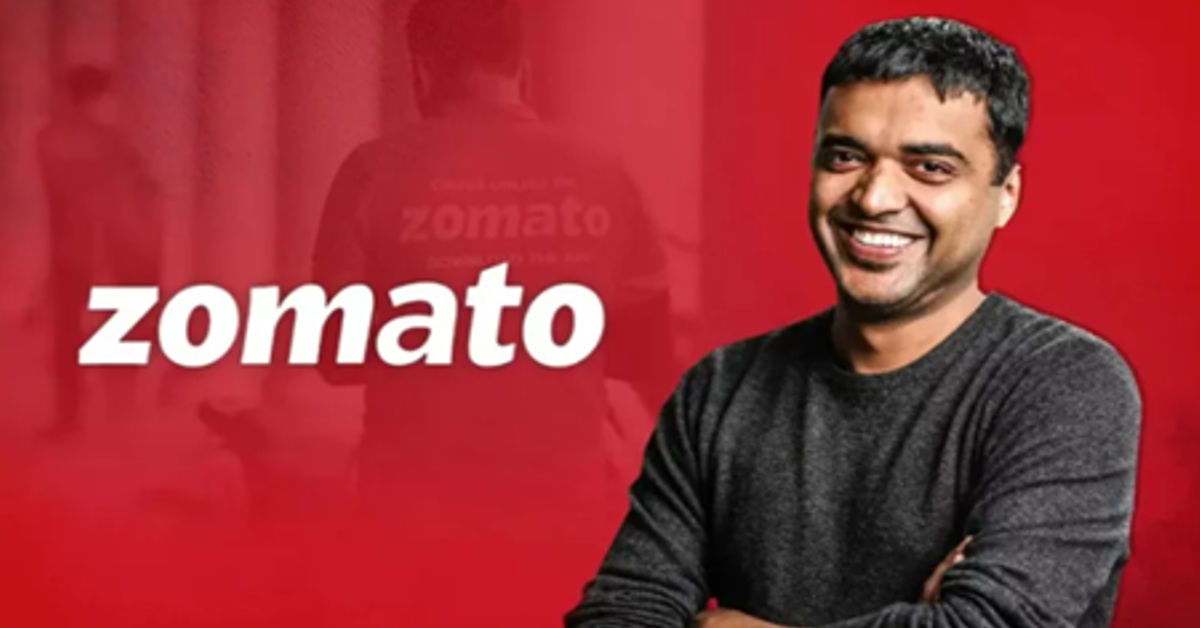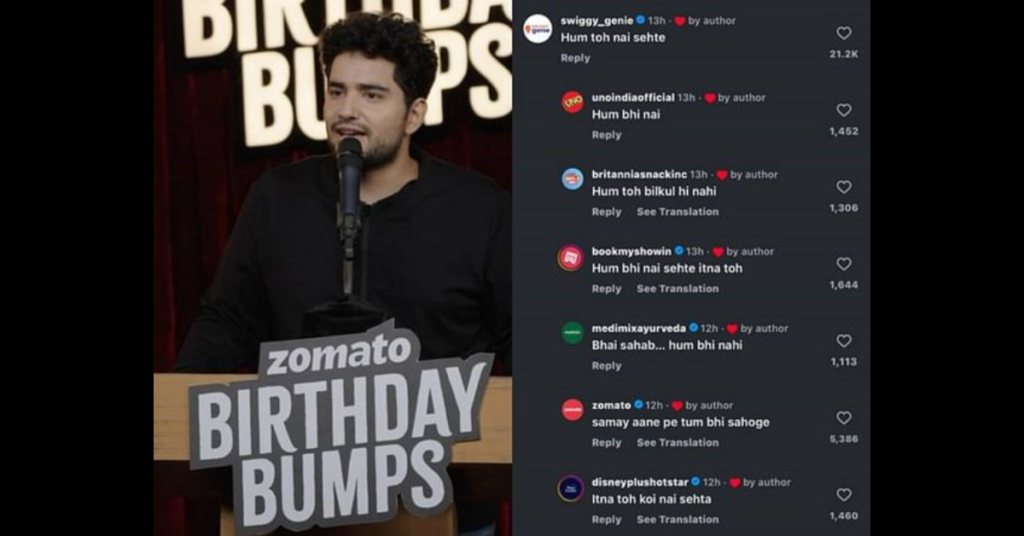
Zomato, the popular food delivery and restaurant discovery platform, recently celebrated its 16th anniversary. Instead of following the usual path of highlighting their achievements, they decided to do something quite different and bold. They invited stand-up comedians to roast themselves and their founders. This unusual marketing strategy quickly caught everyone’s attention and sparked a lot of discussions. Let’s dive into this unique campaign and understand why it was such a hit.
First, let’s understand what a roast is. A roast is an event where comedians make fun of a person or an organization in a humorous way. The jokes can be quite harsh, but it’s all done in good spirits. The goal is to entertain by pointing out flaws or funny situations related to the subject of the roast.
For their anniversary, Zomato decided to let comedians make jokes about their company and founders. They didn’t just highlight the good parts; they allowed comedians to talk about some of the problems customers face when using Zomato. This included issues like delays in refunds, price surges, and handling fees. Normally, companies avoid discussing these problems publicly, but Zomato chose to tackle them head-on in a humorous way.
The roast featured well-known comedians like Samay Raina, Gaurav Kapoor, Swati Sachdeva, and Shreeja Chaturvedi. They didn’t hold back and delivered sharp, witty critiques that many Zomato users found relatable and funny. One standout moment was when comedian Samay Raina wore a T-shirt of Zomato’s competitor, Swiggy, while performing his set. This playful jab added an extra layer of humor and caught a lot of attention.
Zomato’s self-roast wasn’t just about making people laugh. It was a strategic move to show their customers that they are willing to acknowledge their shortcomings and engage in honest conversations. By allowing comedians to be brutally honest, Zomato demonstrated a level of transparency and humility that is rare among big companies. They wanted to appear more genuine and relatable to their audience.
How People Reacted

The campaign was praised by many for its boldness and creativity. Digital marketers and creative professionals on platforms like LinkedIn admired Zomato’s innovative approach. They noted that while many companies want to create unique content, they often hesitate to embrace formats as daring as a roast.
While the campaign received positive feedback, it also came with some risks. The use of explicit and potentially offensive language raised concerns about brand safety. There was also a reminder of past backlashes Zomato faced, like the controversial Kachra campaign and the green dress code for vegetarian delivery fleets. This showed that while being edgy can be effective, it also requires careful handling.
Amit Wadhwa, CEO of Dentsu Creative India, explained that roasting is not a traditional marketing tool but can be very effective if used sparingly. He highlighted that such campaigns can resonate deeply with audiences due to their authenticity. However, he also warned that overusing the format could diminish its impact.
Aalap Desai, co-founder of the creative agency tghtr, mentioned that the honesty and riskiness of a roast could help it stand out and generate buzz. He pointed out that a well-executed roast could go viral, but there’s always a risk of backlash if it’s not done carefully.
Suyash Barve, executive creative director at Manja, argued that roasting is a way for brands to show self-awareness. He suggested that while a roast might not directly change how people view a brand, it shows that the brand is open to feedback and willing to engage with its audience in a genuine manner.
Zomato’s self-roast campaign shows that sometimes, being bold and honest can pay off. Instead of just telling everyone how great they are, Zomato chose to show their human side by acknowledging their flaws in a humorous way. This approach made them seem more relatable and genuine, which is something customers appreciate.
Zomato’s self-roast campaign for its 16th anniversary was a brilliant example of innovative marketing. By daring to poke fun at themselves, Zomato not only entertained its audience but also reinforced its image as a relatable and transparent brand. The campaign’s success highlights the potential of unconventional marketing strategies to make a lasting impact. As brands continue to seek new ways to connect with their audiences, Zomato’s self-roast serves as a compelling case study in the power of humor and humility in marketing.
To sum up, Zomato’s self-roast campaign was a daring and creative way to celebrate their 16th anniversary. By inviting comedians to make fun of their company, they showed a level of honesty and transparency that resonated with many people. The campaign was well-received and praised for its boldness. However, it also came with risks, as humor can sometimes be misinterpreted or go too far. Overall, Zomato’s self-roast was a successful and memorable marketing strategy that other brands might consider emulating, provided they are prepared to handle the potential risks and backlash.
In a world where brands are constantly looking for new ways to connect with their customers, Zomato’s self-roast stands out as a refreshing and authentic approach. It reminds us that sometimes, being able to laugh at ourselves can be a powerful way to build trust and engagement with our audience.
See whats happening in Marketing & Advertising right now
Read and get insights from specially curated unique stories from editorial
Business leaders sharing their
insights
Explore and discuss challenges & trends in India's leading B2B events
Recognise work that not only stood out but was also purposeful
Join leaders & experts for roundtables, conferences, panels and discussions
Subscribe to our Daily Newsletter